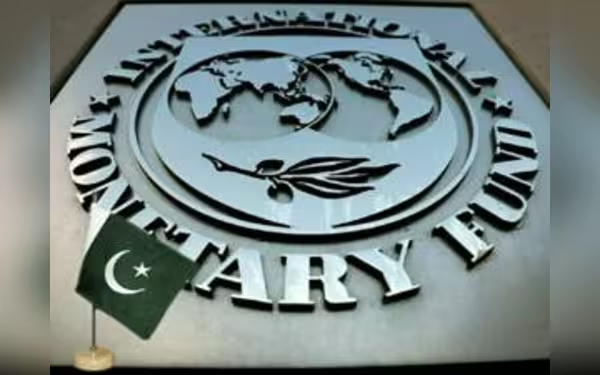Saturday, November 16, 2024 05:36 PM
IMF Imposes New Structural Benchmarks on Pakistan's Economy
- IMF prohibits tax amnesty schemes for Pakistan.
- Privatization of two DISCOs mandated by IMF.
- Government must seek parliamentary approval for non-budgeted expenditures.
 Image Credits: nation_pk
Image Credits: nation_pkThe IMF sets new structural benchmarks for Pakistan, emphasizing fiscal discipline and necessary economic reforms.
The International Monetary Fund (IMF) has recently set new structural benchmarks for Pakistan, marking a significant step in the country’s economic reform journey. These benchmarks are designed to ensure that the government adheres to strict fiscal discipline and implements necessary reforms to stabilize the economy. The IMF's directives come as part of a broader effort to enhance Pakistan's financial health and restore investor confidence.
One of the key directives from the IMF is that the government must refrain from announcing any tax amnesty schemes. This means that individuals and businesses will not be able to declare previously undeclared income without facing penalties. Additionally, the IMF has mandated the privatization of two Distribution Companies (DISCOs) and the introduction of revenue generation measures in the event of a tax collection shortfall. This is crucial as it aims to improve the efficiency of the energy sector and reduce the financial burden on the government.
Furthermore, the IMF has emphasized the need for Pakistan to seek prior parliamentary approval for any non-budgeted expenditures or those that exceed the budgetary limits. This move is intended to enhance transparency and accountability in government spending. The government is also required to approve a National Fiscal Pact, which will delegate certain spending responsibilities to provincial governments, thereby promoting fiscal decentralization.
In terms of taxation, each province is expected to amend its Agriculture Income Tax legislation to align with the federal tax regime. This alignment is aimed at ensuring that taxation on small farmers and commercial agriculture begins by January 1, 2025. Additionally, the government will implement compliance risk management measures in Large Taxpayer Units located in major cities like Islamabad, Karachi, and Lahore, which is expected to enhance tax collection efficiency.
Another significant measure includes the introduction of a 5 percent Federal Excise Duty (FED) on fertilizers and pesticides. This is part of a broader strategy to increase government revenues while ensuring that essential agricultural inputs remain accessible to farmers. Moreover, the government is required to amend the Civil Servants Act to ensure that high-level public officials publicly declare their assets, promoting transparency and reducing corruption.
The IMF has also highlighted the importance of addressing governance vulnerabilities within the banking sector. The government must ensure that undercapitalized private banks are either recapitalized or placed under resolution by the end of October 2024. This is crucial for maintaining the stability of the financial system and protecting depositors' interests.
In the energy sector, the government is tasked with completing all necessary policy actions to prepare the two DISCOs for privatization. This includes eliminating captive power usage in the gas sector, which is expected to streamline operations and improve efficiency.
As Pakistan navigates these challenging economic reforms, it is essential to recognize that delays in implementing these measures could jeopardize the country’s growth outlook and external sustainability. The government has acknowledged that any backtracking on crucial reforms, particularly in exchange rate policy, tax reforms, and the energy sector, could lead to increased pressures on domestic banks and hinder the return to macroeconomic stability.
Looking ahead, the upcoming fiscal year 2025 budget is seen as a critical step in advancing fiscal consolidation efforts. The government aims to achieve a primary surplus of PRs 1,177 billion, which is approximately 1.0 percent of the GDP. This ambitious target reflects the government’s commitment to restoring fiscal discipline and ensuring sustainable economic growth.
The IMF's new structural benchmarks for Pakistan represent a pivotal moment in the country’s economic reform agenda. By adhering to these guidelines, the government can work towards stabilizing the economy, enhancing transparency, and ultimately fostering a more conducive environment for investment and growth. As these reforms unfold, it will be crucial for all stakeholders, including the government, businesses, and citizens, to collaborate and support these efforts for a prosperous future.













